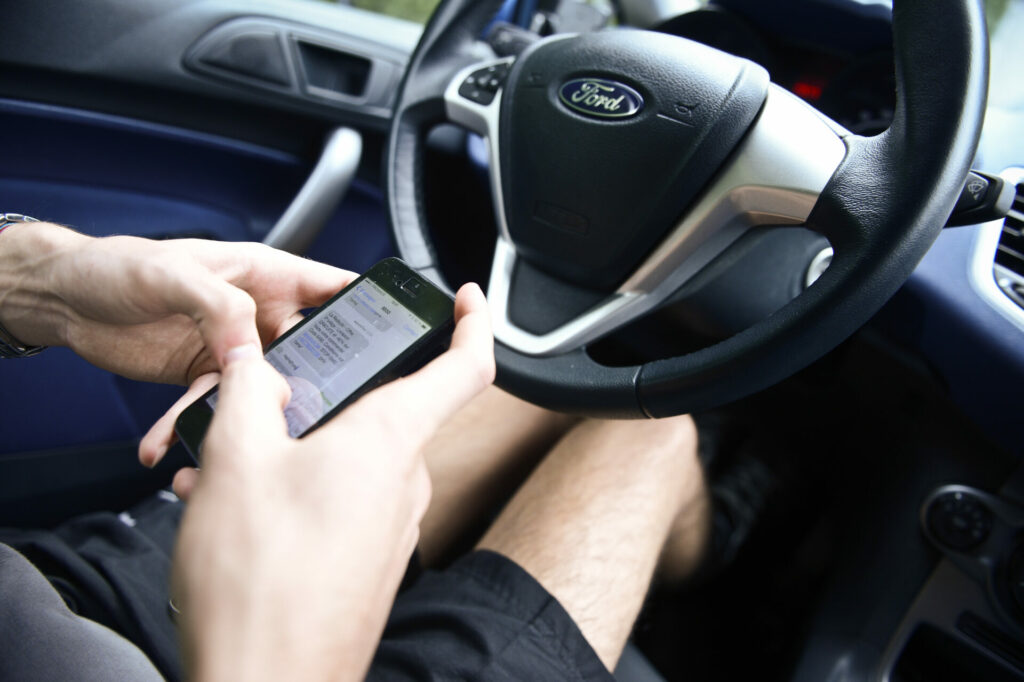Drivers are engaging more and more with their mobile phones while driving, and despite the risks involved with such behaviour being well-known, efficient measures to catch these perpetrators have been obstructed by legal divisions.
Car drivers in Belgium still spend 2% of their time holding an electronic device when behind the wheel. Two years ago, a pilot project was launched in Antwerp to detect drivers violating the law with so-called "smart cameras," but the law prohibited them from being fined.
"The use of a mobile phone behind the wheel cannot yet be determined by the camera alone, as this requires a change in the law," Benoit Godart, Vias traffic institute's communication manager, told The Brussels Times. The main critics of the project said it was a blatant invasion of privacy to allow smart cameras to detect this behaviour, and opened the door to facial recognition.
On Friday, a new agreement between the Federal Government and the Vias traffic institute will be finalised, paving the road for a new "smart camera" pilot project that will come into effect next year, which will actually result in drivers that are caught via this method being fined.
"For this second project, which will run for several months, a police officer will analyse the images taken by the camera and establish the offence," Godart explained. However, it remains unclear at what point exactly drivers will be fined based on camera images.
Legal challenges
Using a mobile phone behind the wheel is a punishable offence — since this year, a person can be fined €174 for doing so — but if a driver was detected violating the law by a smart camera, they would not receive an official police report in their post box for doing so.
Now, a loophole will be introduced in the new pilot project, which will be rolled out in one municipality in Brussels, as well as two in Flanders and two in Wallonia, De Standaard reports.
"The great danger of mobile phone use behind the wheel justifies the deployment of new technologies," said Mobility Minister Georges Gilkinet, adding that this must be done in a way that respects drivers' privacy.
"We, therefore, carry out a risk analysis and included the police privacy watchdog. Everything is now in line with current legislation, including the fines," he added.
Delayed implementation
The Federal Government is looking at 2025, a year after the end of its mandate, due to the internal struggles within the government on this topic.
Vooruit MP Joris Vandenbroucke, who was in charge of the bill that saw the highway code being updated to ensure that the use of all mobile electronic devices with a screen would be banned while driving, stressed the importance of this change in the law more rapidly.
Related News
- Energy crisis: Road lights must be switched off only where it is safe to do so, says minister
- 'Life-threatening': 5% of Brussels drivers use mobile phones behind wheel
"Increasing the chances of being caught is needed to curb key killer in traffic: mobile phone use behind the wheel. The use of cameras is indispensable for this. The aim is not to fine more people, but to discourage mobile phone use behind the wheel to save lives," he wrote on Twitter.
He added that the previous pilot project showed that the cameras caught as many drivers in one month on the Antwerp Ring Road as cops can manually in the whole of Belgium in a whole year. "How many more deaths are needed before this can be implemented."

